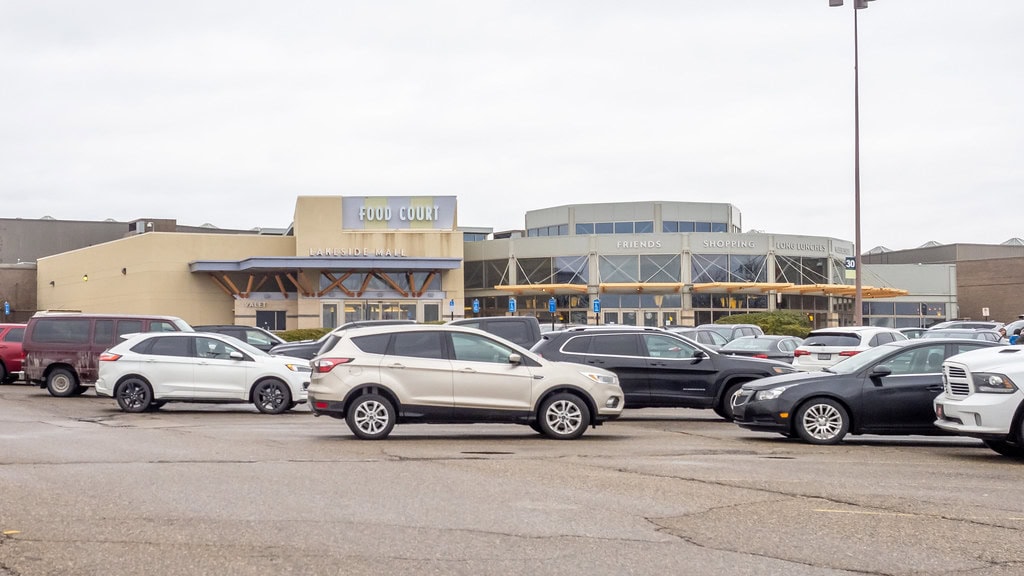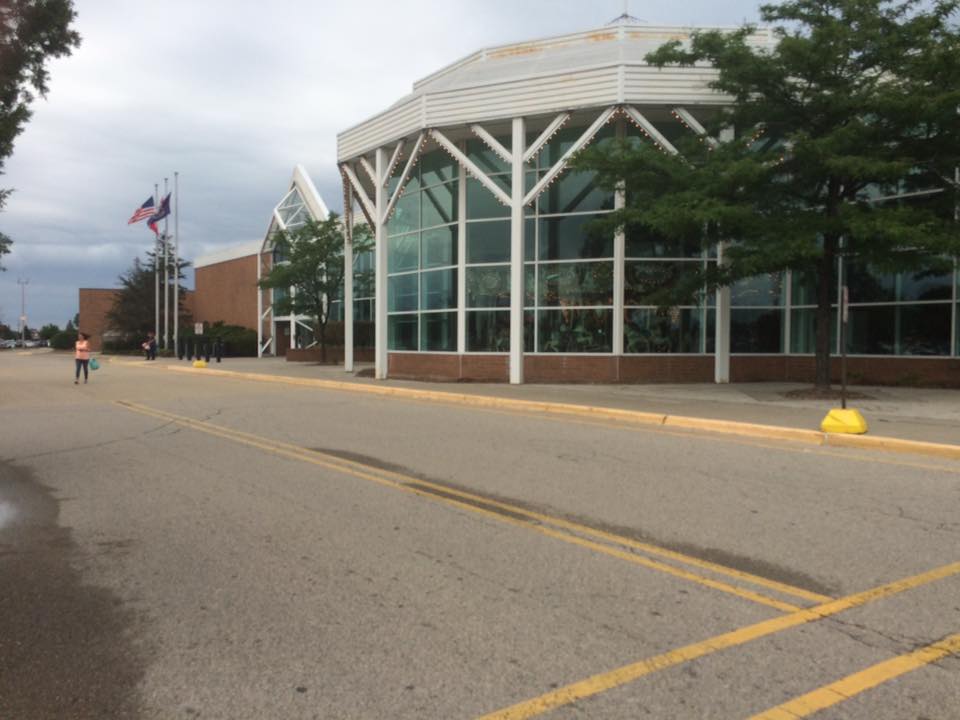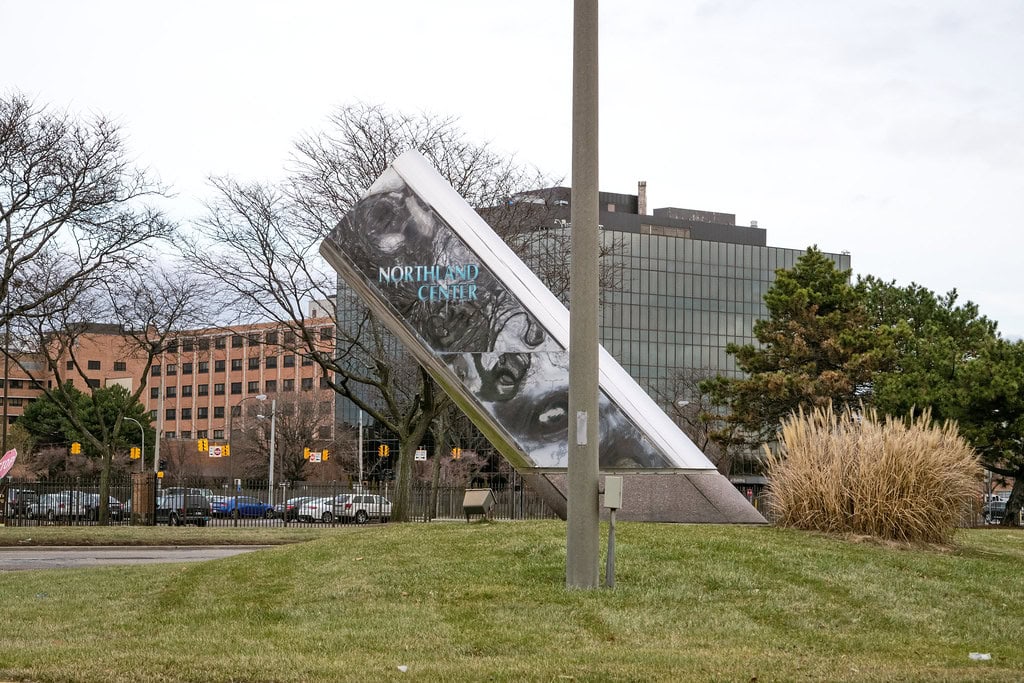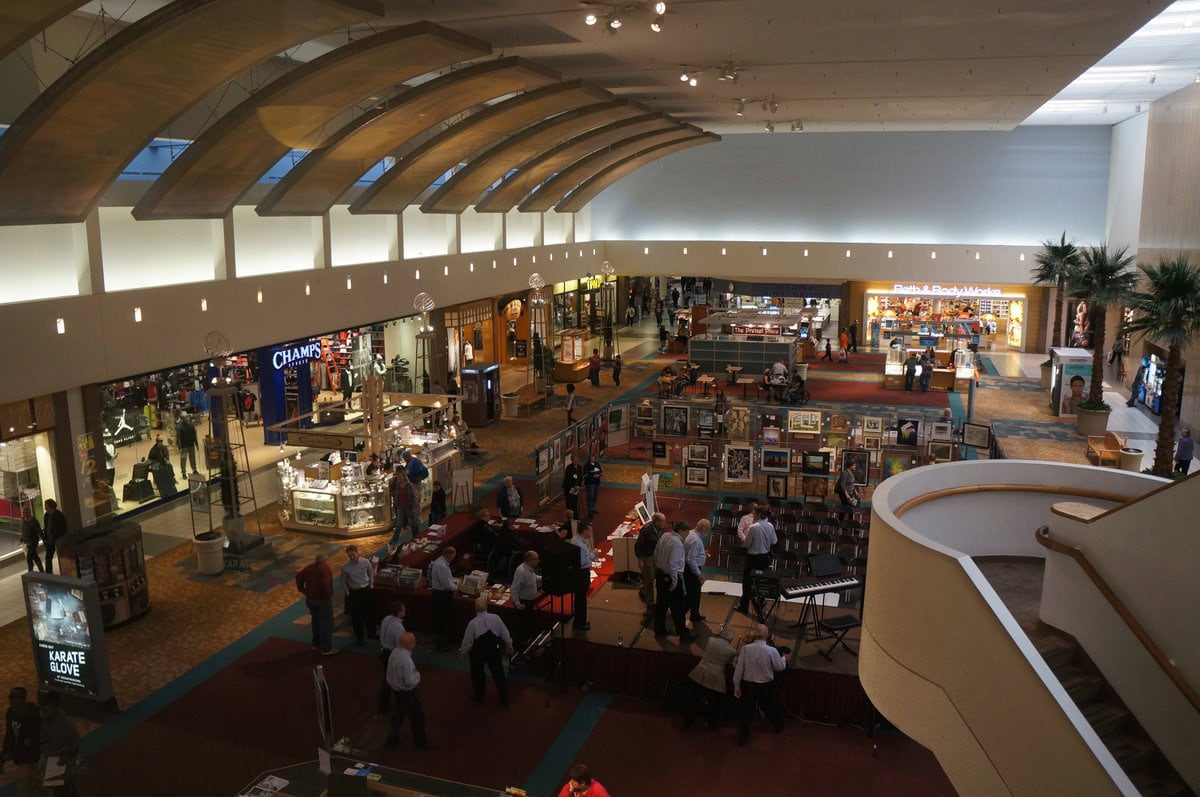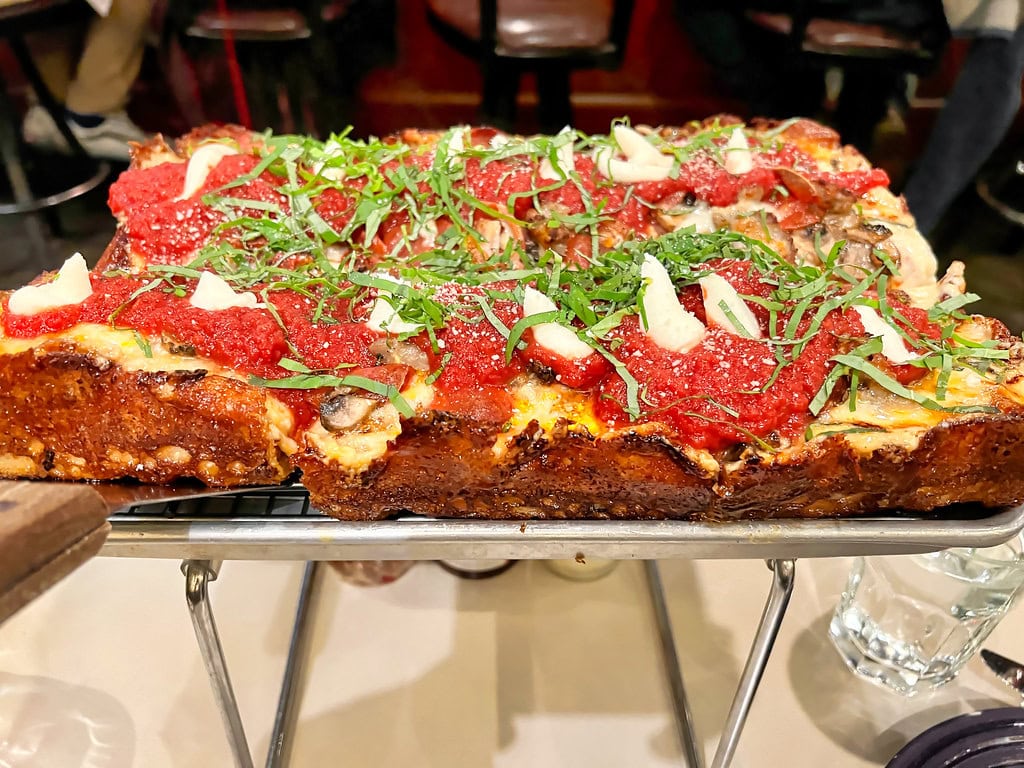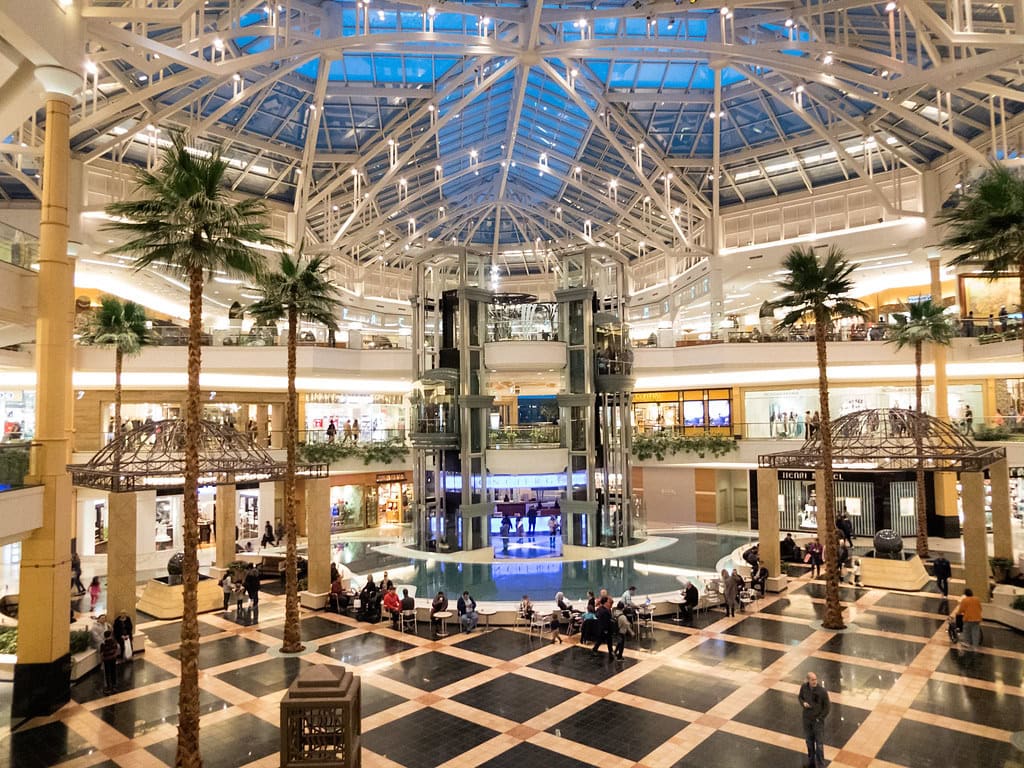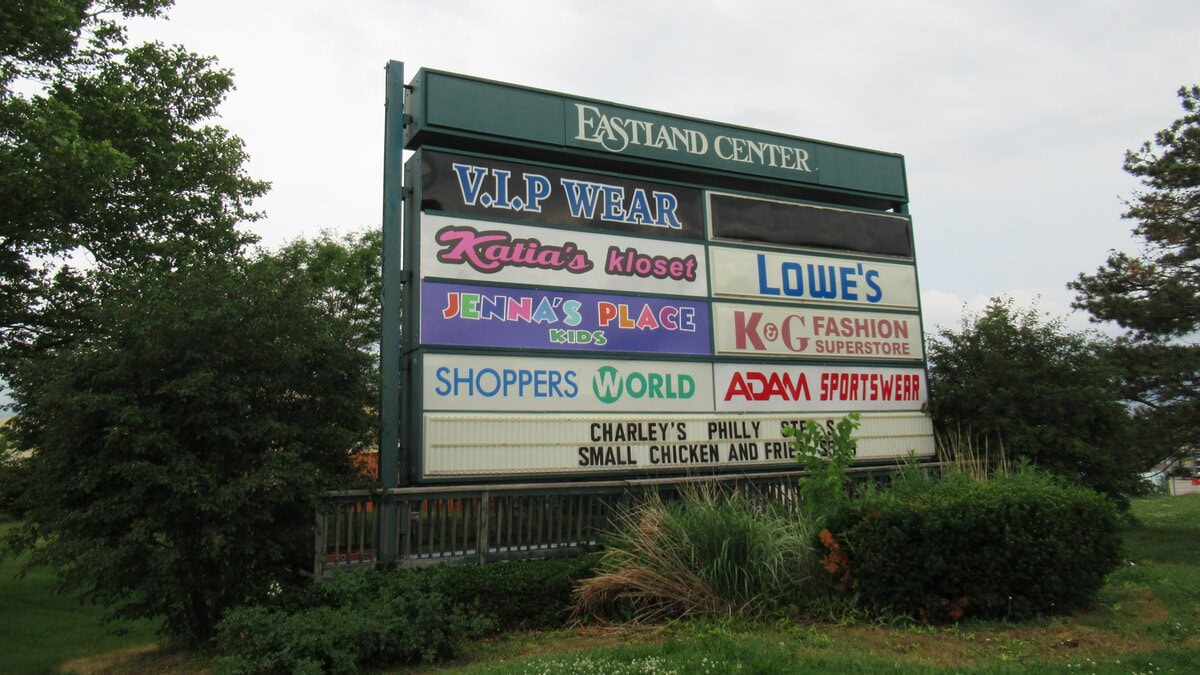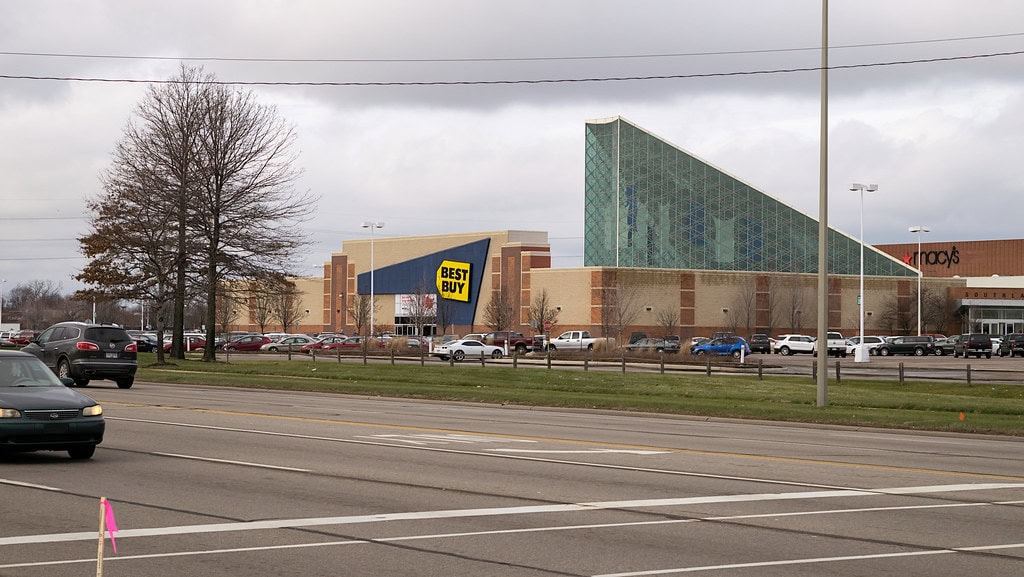Great Lakes Crossing Outlets takes shape
By 1990, plans for a huge shopping complex on Auburn Hills farmland began taking shape under the name Auburn Mills.
That same year, Lake Angelus filed lawsuits to stop the project, but a circuit judge ruled in favor of the developer in August.
Financing unraveled soon after, and Union Bank of Switzerland gained control of the land following a foreclosure threat.
In 1994, the state widened the I-75 and Baldwin Road interchange, preparing access for a future retail site that no longer seemed certain.
Two years later, Taubman Centers moved to acquire the stalled property and quickly scaled back the original concept.
The new plan traded department stores for outlets and trimmed the footprint to a single, enclosed oval.
By September 1997, the project carried a new name: Great Lakes Crossing.
Construction advanced through 1997 and 1998, requiring 2.5 million cubic yards of earthwork and over 100,000 tons of asphalt.
Nine themed districts lined a half-mile concourse designed to loop shoppers back toward the entrances.
As crews poured concrete and set roof trusses that fall, the structure began to resemble the regional draw Taubman envisioned.
By late 1998, the last exterior panels closed in a project that had already outlived two owners and nearly a decade of uncertainty.
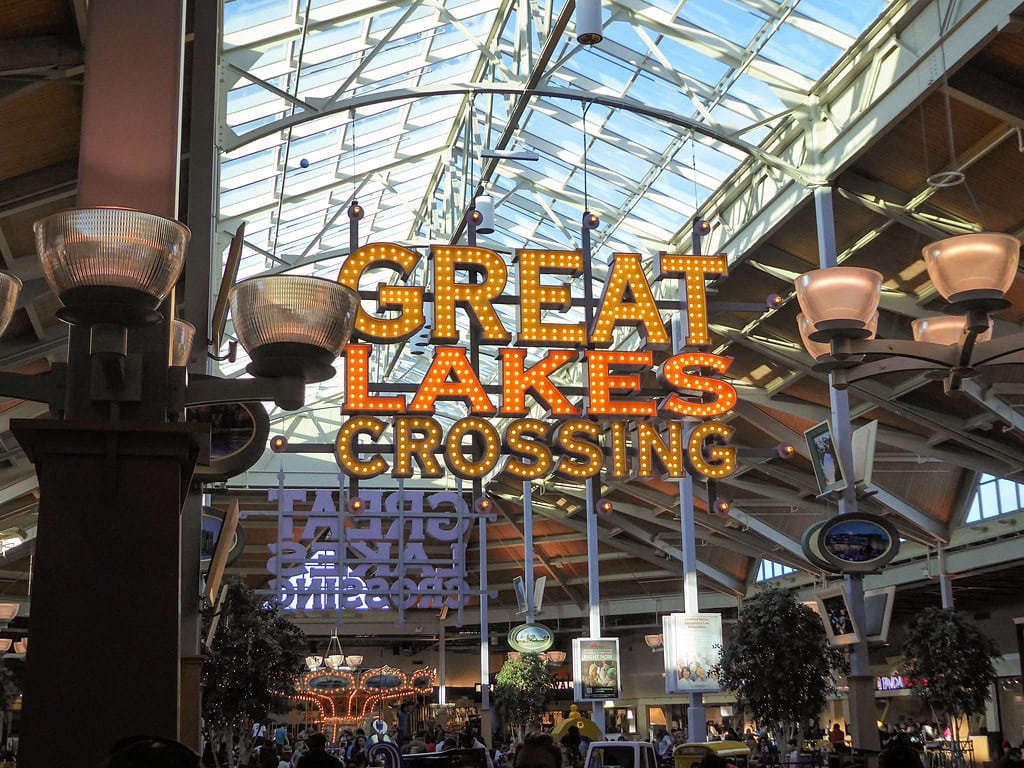
Opening week lands the tenant mix
The mall opened on November 12, 1998, after nearly a decade of stalled plans and redesigns.
A four-day program marked the debut, with 91 percent of storefronts already leased.
Visitors entered through nine themed districts that stretched along a looping corridor half a mile long.
Anchors set the tone early.
Bass Pro Shops Outdoor World opened its massive outdoor retail hall as a draw for regional shoppers.
Burlington, Marshalls, and TJ Maxx filled other key corners, joined by Bed Bath & Beyond and Sportmart.
Star Theatres' multiplex and the Rainforest Cafe added entertainment and family dining to the opening lineup.
In the beginning, the numbers looked good. Heavy traffic, sales strong enough to turn heads.
Then Edison Brothers collapsed, dragging two of its clothing ideas down with it.
Those empty spaces? Gone almost immediately.
By 1999, Victoria's Secret and Forever 21 were up, restoring that uneasy balance between discount outlets and mainstream names.
JCPenney Outlet closed in early 2002, and the large box was divided.
Circuit City opened there in November 2003, marking a pivot toward big-box electronics.
Taubman Centers purchased the remaining ownership stake that year, taking full control of the property as it settled into steady trade.
Outlet identity and a youthward shift
The next phase began in 2007, when H&M opened a 22,000-square-foot store that redefined the mall's fashion mix.
Its arrival introduced a faster, trend-driven approach and attracted younger shoppers who had not been part of the early outlet base.
The store became a model for the mall's evolving merchandising strategy.
In March 2010, GameWorks closed after its corporate parent restructured, leaving behind an empty entertainment box near the center of the property.
The vacancy did not last long.
That same year, Toby Keith's I Love This Bar & Grill opened in a 22,000-square-foot space, adding live music and casual dining to the tenant list.
The mix began tilting toward leisure uses that could extend visit time.
October 2010 marked the official rebrand to Great Lakes Crossing Outlets.
The change came with an expanded lineup of national factory stores, including Lord & Taylor Outlet, Hugo Boss Factory Store, and Talbots Outlet.
The relaunch event featured a ribbon cutting, giveaways, and new signage throughout the concourse.
On Black Friday 2010, Art Van Furniture opened a 43,000-square-foot showroom in the former Circuit City space.
Borders closed the following year during the chain's liquidation, and the outparcel later became 2nd & Charles in 2013, rounding out a three-year transformation into a full outlet destination.
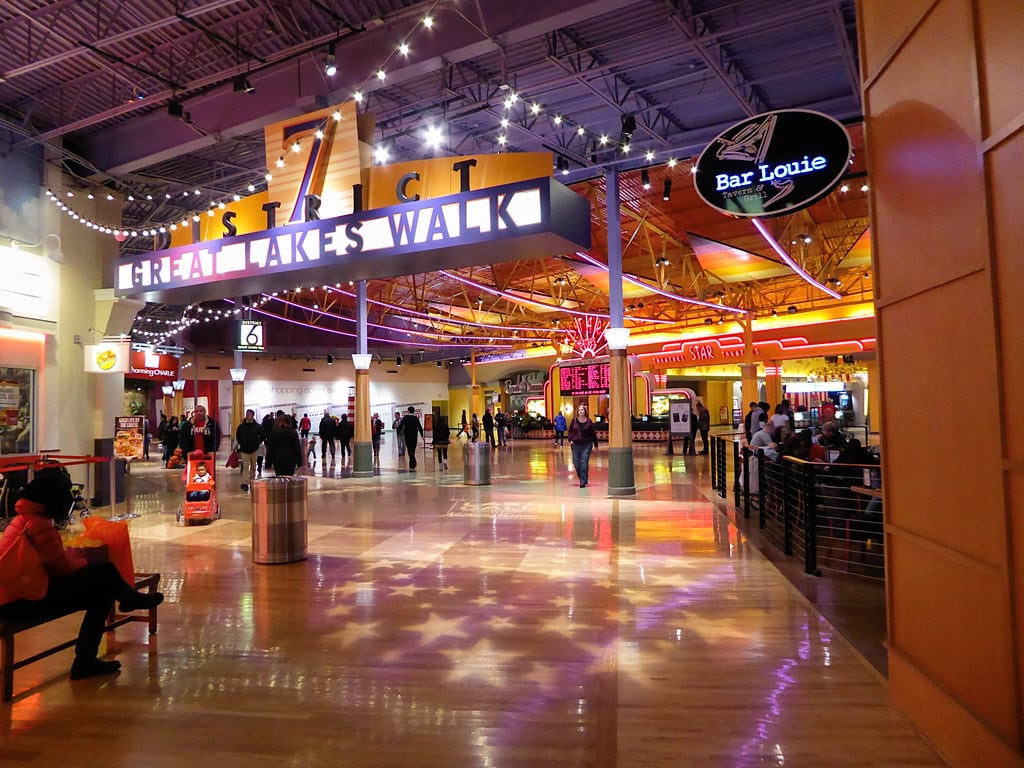
Attractions turn the center into a day trip
In late 2014, SEA LIFE Michigan Aquarium opened inside the mall as the state's largest aquarium.
Tanks holding more than 250 species and a curved ocean tunnel turned an indoor retail wing into a marine exhibit.
The launch extended visit times beyond shopping and drew steady family traffic.
Jeepers, the indoor amusement park that had operated since 1998, closed its doors on February 22, 2015.
The removal of rides cleared floor space for new tenants as the mall's focus shifted toward tourism-based attractions.
LEGOLAND Discovery Center Michigan opened in 2016.
It featured two rides, a 4D cinema, and a LEGO-scale model of nearby landmarks built inside a 32,000-square-foot area.
Families began treating a mall trip as a full-day outing, pairing the aquarium and the new center with dining stops.
The same year, Sports Authority closed after its national bankruptcy.
Round1 Entertainment took over the old box and filled it with noise.
Bowling balls slammed into pins, karaoke echoed off the walls, and arcade lights never stopped flickering.
By the end of 2016, the property wasn't just a mall anymore. It worked like a split thing, half outlet, half hangout.
SEA LIFE's tunnel, LEGOLAND's displays, and Round1's energy turned shopping into a background.
Late-2010s churn and fitness fill-ins
Neiman Marcus Last Call closed for good on January 15, 2018.
The store had been part of the outlet mix for several years, but by spring its signs were gone and the lights were off.
Planet Fitness moved in later that year, turning the 43,000-square-foot space into a gym filled with purple machines and steady daily traffic instead of weekend crowds.
At the end of 2018, Saks Off 5th packed up as part of a national downsizing.
In July 2019, Nordstrom Rack confirmed it would take over the same spot, with an opening planned for early 2020.
The change kept an off-price fashion anchor in place and avoided a long stretch of vacancy.
Renovation work carried on through 2019.
Crews replaced flooring, updated lighting, and repainted the walls across several districts.
The upgrades modernized parts of the concourse that still looked much like they had in 1998.
Storefronts received new signs, and smaller spaces filled with national outlet brands and local shops.
By the end of the decade, Great Lakes Crossing Outlets felt stable again.
Fitness, entertainment, and outlet stores shared the space, with anchors like Planet Fitness, Round1, and Bass Pro Shops drawing consistent traffic and keeping the mall fully active.
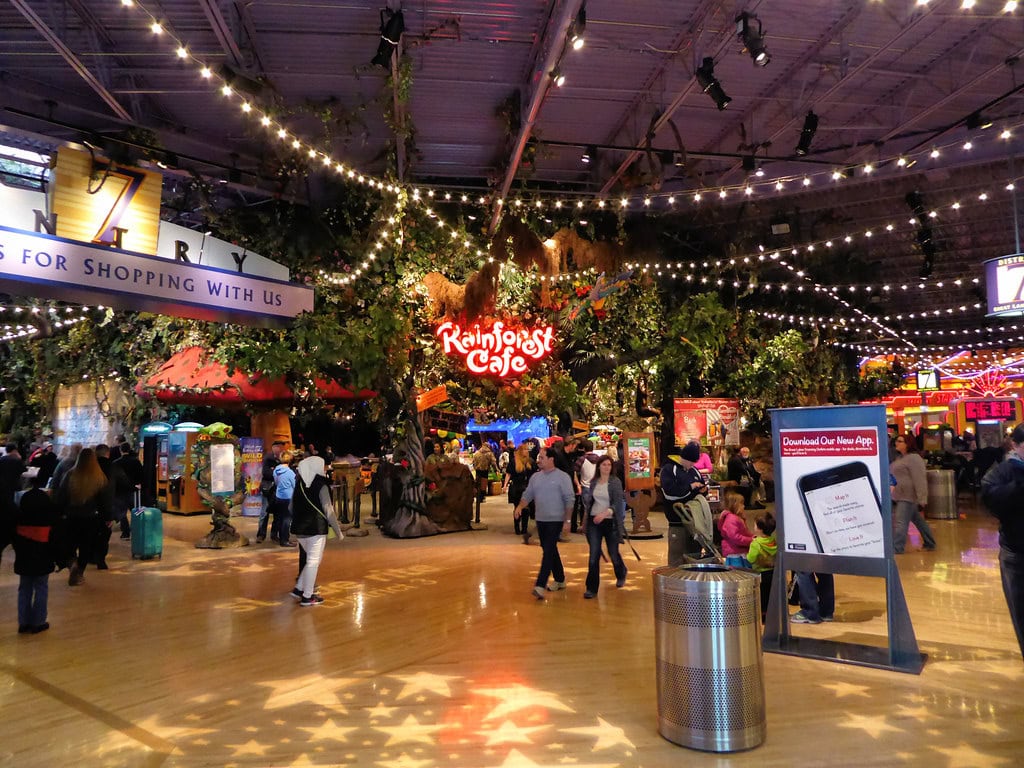
Pandemic shock and a new landlord
Art Van Furniture announced liquidation on March 5, 2020, closing the store that had opened a decade earlier.
Weeks later, the mall went dark as Michigan's health orders shut down nonessential retail.
Doors stayed locked through the spring while only essential maintenance and curbside pickups continued outside.
In June 2020, Simon Property Group tried to cancel its planned purchase of Taubman Centers, citing the collapse of in-person retail.
After months of legal dispute, the companies reached a new agreement.
The deal closed on December 28, 2020, giving Simon an 80 percent share in Taubman Realty Group while the Taubman family kept 20 percent and management control.
As restrictions eased in 2021, outlet stores reopened with adjusted hours and wide spacing between racks.
SEA LIFE, LEGOLAND, and the AMC Star Great Lakes 25 resumed limited operations.
By midyear, traffic began to recover, boosted by entertainment tenants and returning shoppers.
Bed Bath & Beyond shut down its store in October 2022 as part of a national contraction.
Its large box stayed empty through 2023, one of the few unfilled spaces in the center.
By the end of that year, Great Lakes Crossing Outlets operated under shared Simon–Taubman ownership, steady but still adapting to new retail conditions.
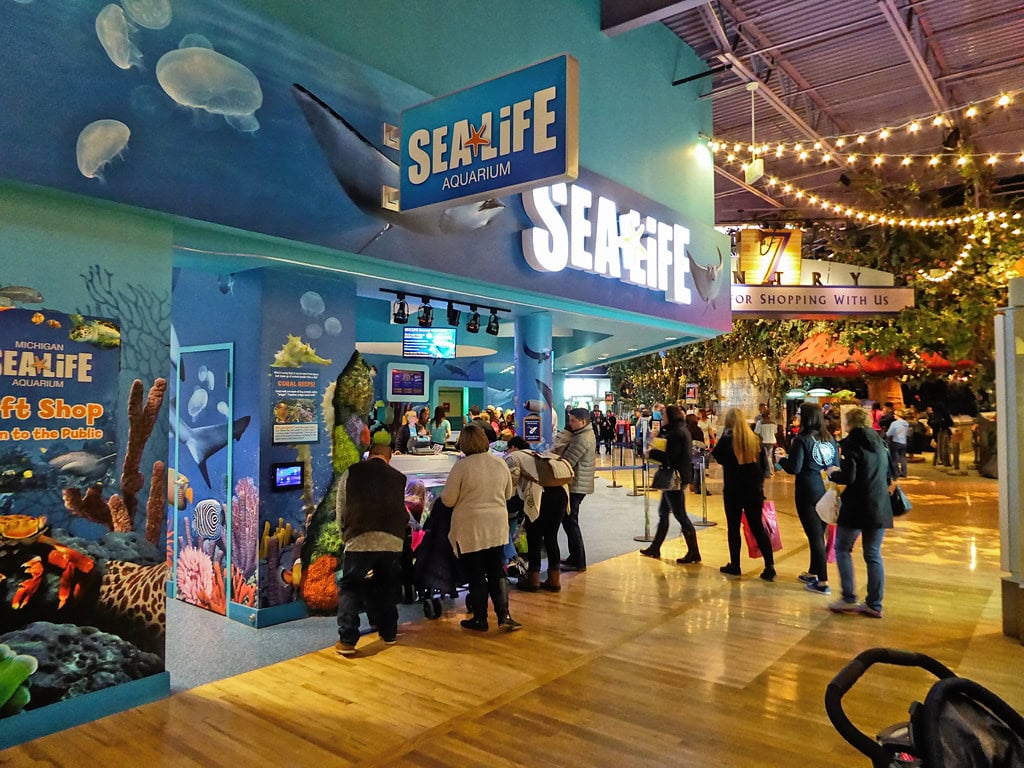
2024–2025 retenanting resets the anchors
The next round of change began in early 2024.
Dick's Sporting Goods signed on to occupy the former Bed Bath & Beyond space and opened on August 23 with a full weekend of grand-opening events.
The new store brought athletic gear, apparel, and equipment into a part of the mall that had sat dark for two years.
Primark followed quickly.
On September 12, 2024, the brand opened its first Michigan location in the 36,600-square-foot former Art Van Furniture box.
The launch drew large crowds and introduced a low-cost fashion chain already popular across Europe and the East Coast.
Bar Louie closed on March 24, 2025, ending a fifteen-year run at the property.
Two months later, Forever 21 shut down along with all its Michigan stores after another bankruptcy filing.
Urban Planet by Charlotte Russe moved into the same space on October 17, 2025, using the existing build-out with minimal changes.
That fall, a seasonal Toys R Us shop opened for the holidays, joining long-term anchors like Bass Pro Shops, Burlington, H&M, Nordstrom Rack, and AMC.
By late 2025, Great Lakes Crossing Outlets had renewed its full roster once again, combining outlet retail, attractions, and entertainment under one roof.

